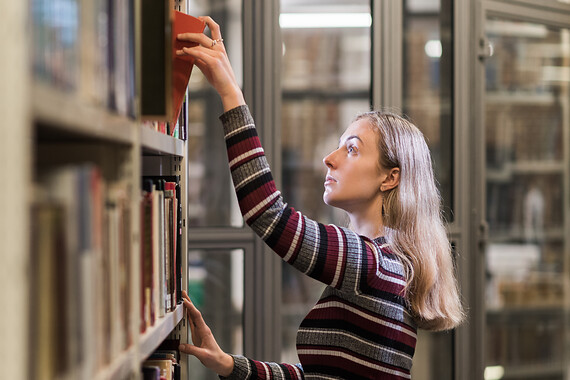
- Our studies
- Our research
- Publications and resources
- Data access and training
- About
- News
- Events
- Get in touch
- Join our mailing list

Around half of all young people in year 11 who reported experiencing long COVID felt they had fallen behind their classmates due to the COVID-19 pandemic – with almost three in five saying that they had not caught up with lost learning – according to new research involving UCL.

Led jointly by the UCL Centre for Education Policy and Equalising Opportunities (CEPEO), the UCL Centre for Longitudinal Studies (CLS) and the Sutton Trust, the COVID Social Mobility & Opportunities (COSMO) study is the largest study examining the impacts of the pandemic on young people.
Published today as a briefing, the study explores the health impacts and behaviours of almost 13,000 young people across England who were in Year 11 in 2021/22. Most of the cohort are currently in Year 13, if they are still in education. The briefing explores the incidence of COVID-19 and long COVID, and how this has affected young people’s education – including GCSE attainment using linked National Pupil Database (NPD) data.
The research found that almost one in five young people, including those who had not contracted the virus, reported that their GCSE results were worse than they expected. Pupils who had severe long COVID also achieved, on average, lower teacher-assessed GCSE scores than their peers who did not suffer from long COVID.
The study found that more than half (52%) of young people who were asked to shield from the virus reported that they had fallen behind their classmates, compared to a third (33%) of those who were not asked to shield.
Patterns of long COVID were also found to vary by young people’s social background. One in five (20%) comprehensive state school students who reported having COVID-19 either currently have or previously had long COVID, compared to one in six grammar and independent school pupils (16%). Furthermore, the study found that those from the most disadvantaged areas of the country are more likely to report long COVID, compared to those from the least deprived areas (25% vs 18%).
COSMO Principal Investigator, Dr Jake Anders (UCL CEPEO), said: “With attention on issues around COVID-19 fading, we should not forget its continuing effect on those for whom it was a particularly debilitating illness to experience. Some continue to suffer from long COVID.
“Even those who have recovered have seen implications for their wider lives and life chances, such as lower academic attainment scores for those who experienced severe long COVID. These impacts also seem to have reinforced existing health and socioeconomic inequalities.”
COSMO is funded by the Economic and Social Research Council (ESRC) as part of UK Research and Innovation’s rapid response to COVID-19.
Further information
Health Impacts & Behaviours briefing
The research findings are available in a series of briefings on the COSMO website. These look at how students found lockdown learning, their experience of education recovery and catch-up and how this may have affected their future plans and aspirations. Other briefings have looked at Mental Health & Wellbeing.
For researchers interested in accessing the data behind the study, data from Wave 1 have been made available today on the UK Data Service website.
Further information about the study is available on the COSMO website, on Twitter and on LinkedIn.
Ryan Bradshaw
Senior Communications Officer
Phone: 020 7612 6516
Email: r.bradshaw@ucl.ac.uk